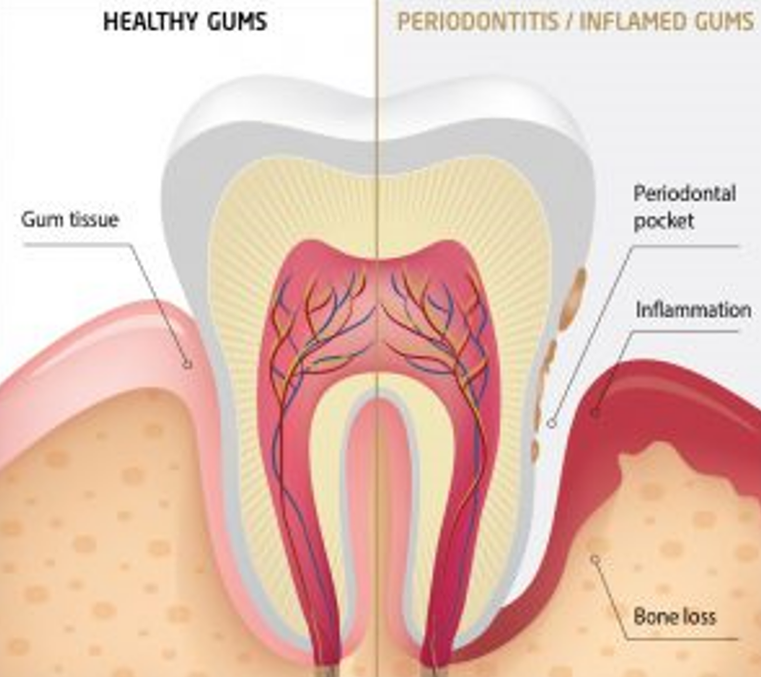WHAT IS A “DEEP CLEANING”?
What is deep cleaning?
You may have heard people say that they’ve had an appointment for a “deep cleaning” and wondered what it is and how it’s different to having a regular scale and clean at the dentist.
Some clinics use the term “deep cleaning” to describe the treatment for periodontal disease or gum disease. We prefer to call it “Periodontal Debridement” or “Periodontal Treatment” here at Grandis Dental.
As you can see in the diagram above, the gum on the right is inflamed and infected due to the hard bacterial buildup on the surface of the tooth. The gum tissue swells and loosens away from the tooth surface, allowing further bacteria to build up in the periodontal pocket. This causes further inflammation and infection, and we call this “Gingivitis”.
If the bacteria are left undisturbed in the Periodontal Pocket for a prolonged period, the body will initiate an exaggerated response to the bacteria, which leads to bone loss and a deeper Periodontal Pocket. This is called “Periodontal Disease” or “Periodontitis”.
The goal of Periodontal Debridement or “Deep Cleaning” is for your dental practitioner to clean the surface of the tooth so that the gum re-adheres to the root surface, making the periodontal pocket shallower.
FOLLOWING PERIODONTAL TREATMENT:
Discomfort: Take medications as directed for postoperative discomfort. Panadol or Nurofen can relieve mild-to moderate pain. Remember that these medications can take up to 30 minutes to one hour to take effect.
Smoking: Avoid smoking during the healing period (at least for 14 days, purchase the patch if necessary). It is recommended that you do not smoke for the first two weeks since smoking can interfere with the healing and make the results less predictable. Ideally, use the day of your deep cleaning as the day to quit smoking, for best overall results in the long term.
Diet: A nutritious liquid or soft diet might be necessary for the day of and day after the treatment.
Home Care: Maintain excellent daily oral hygiene measures- brush and floss. A sensitive toothpaste can help to reduce postoperative discomfort. If you struggle to floss, check out our blog about flossing here for alternatives.
Use a warm salty mouthwash to soothe any tender spots.
Should you require a mouthwash, one of our friendly dentist will prescribe one for you.
Remember, the cleaner that you keep your teeth the better your gums will heal.






